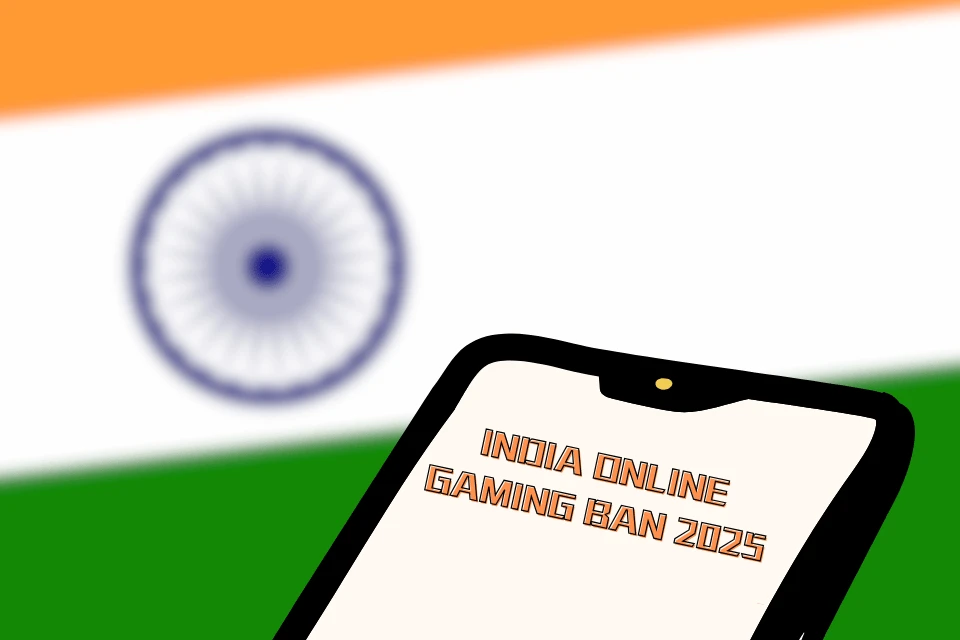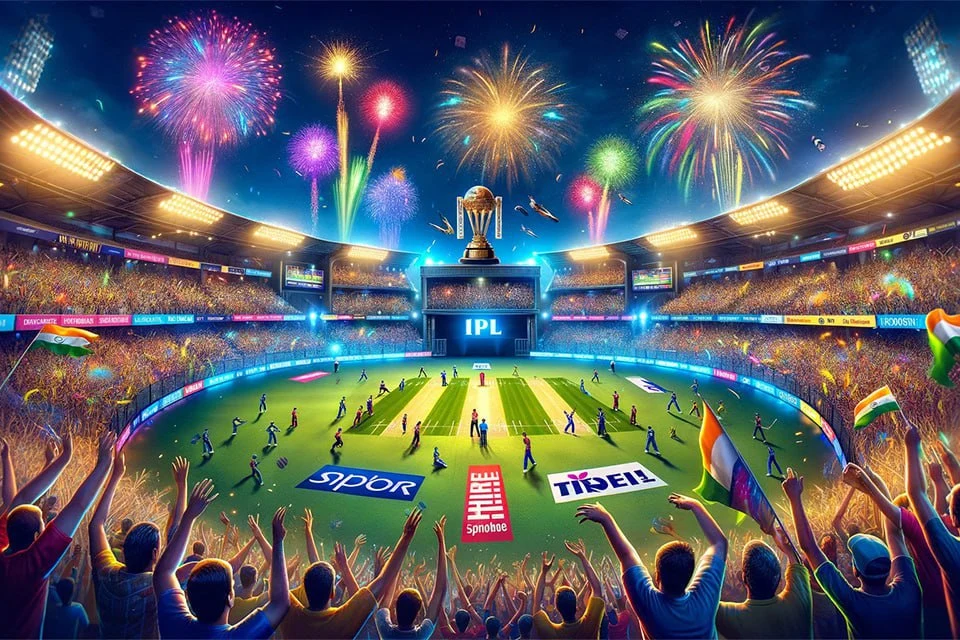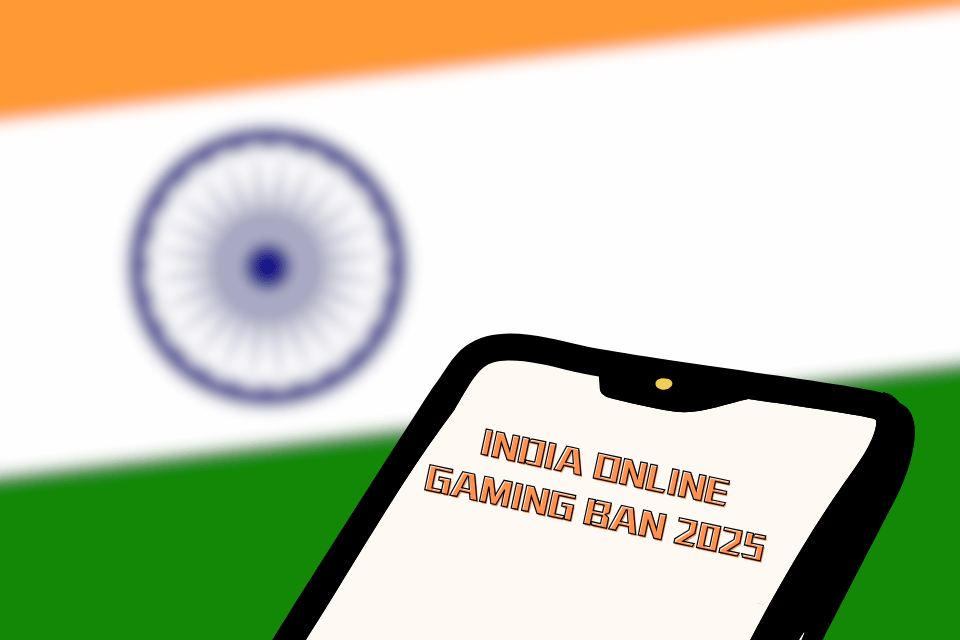India Online Gaming Ban Sparks Shutdowns, Industry Faces Billions in Losses
New Delhi, August 23, 2025 — India’s online gaming industry, once hailed as one of the fastest-growing digital sectors in the world, has been thrown into crisis following the enactment of the Promotion and Regulation of Online Gaming Act, 2025. On August 22, the President of India signed the bill into law after it was swiftly passed by Parliament a day earlier. The legislation introduces a sweeping India online gaming ban, targeting all real-money games and triggering immediate shutdowns across the industry.
- India Online Gaming Ban 2025 — What Was Passed
- Why India Enforced the Online Gaming Ban
- The Online Gaming Boom Before the Ban
- Immediate Impact of the India Online Gaming Ban
- Social and Sports Repercussions of India’s Online Gaming Ban
- International Context of the India Online Gaming Ban
- Industry and Expert Reactions to the Ban
- The Road Ahead After the India Online Gaming Ban 2025
- Final Takeaways from the India Online Gaming Ban
India Online Gaming Ban 2025 — What Was Passed
The 2025 Act categorically prohibits any online game involving monetary stakes, including fantasy sports leagues, poker, rummy, and card-based platforms. Advertising and promotion of such games are also banned under the law.
Violators of the India online gaming ban could face up to three years of imprisonment or significant financial penalties. Government officials emphasized that the legislation was introduced to address rising concerns over gambling addiction, illegal betting, and the misuse of gaming platforms for money laundering.
At the same time, the Act distinguishes between gambling-style platforms and other digital categories such as e-sports, educational apps, and skill-based games, which remain legal and encouraged.
Why India Enforced the Online Gaming Ban
The push for an online gaming ban in India has been building for years. Reports highlighted how unregulated real-money gaming platforms were contributing to a surge in personal debt, particularly among younger users. Law enforcement agencies also warned about the role of offshore betting networks and risks of terror financing.
A senior government spokesperson said: “The Promotion and Regulation of Online Gaming Act, 2025 is not meant to stifle innovation. The India online gaming ban is designed to protect vulnerable citizens, especially youth, from the harms of gambling disguised as gaming.”
Critics, however, believe the ban is too broad. Industry groups proposed a tiered regulatory framework that would license operators, enforce age restrictions, and impose stricter KYC verification. Instead, the government opted for a total prohibition, leaving companies with no room to adjust.
The Online Gaming Boom Before the Ban
To understand the impact of the India online gaming ban 2025, it’s important to consider how large the sector had become. According to industry estimates:
- India had over 400 million online gamers, making it the second-largest gaming market in the world after China.
- The real-money gaming segment alone was valued at USD 2.5–3 billion annually, with double-digit growth year-on-year.
- Startups like MPL and Dream11 had raised hundreds of millions in venture capital, backed by global investors including Sequoia, Tiger Global, and Tencent.
This rapid expansion turned gaming into a mainstream digital economy driver. The sudden ban has therefore created a shock comparable to policy resets in industries such as crypto or ride-hailing in earlier years.
Immediate Impact of the India Online Gaming Ban
The consequences of the India online gaming ban 2025 have been swift and dramatic.
- Dream11, the leader in fantasy sports, suspended all paid contests, which made up nearly 90% of its business.
- Mobile Premier League (MPL) announced it would discontinue real-money products, resulting in layoffs.
- Zupee halted new user sign-ups and payments.
- Poker platforms including PokerBaazi and PokerStars India paused deposits and services.
Analysts estimate that the ban could wipe out over ₹20,000 crore (USD 2.4 billion) in annual tax revenues for the government. Startups across the ecosystem now face layoffs, reduced investment, and uncertainty.
The India online gaming ban has also disrupted the sports sponsorship ecosystem. Dream11, a major sponsor of the Board of Control for Cricket in India (BCCI), is reconsidering long-term deals. Upcoming events such as the Asia Cup could be affected if gaming firms withdraw funding.
Other sporting leagues, heavily dependent on real-money gaming advertisers, are scrambling to find replacement sponsors. Experts warn this could weaken the financial foundation of India’s sports ecosystem in the short term.
International Context of the India Online Gaming Ban
Globally, India’s decision mirrors approaches seen in China and Vietnam, where real-money gaming is prohibited due to concerns about addiction and financial crime. In contrast, countries such as the UK and parts of Europe regulate online gambling through strict licensing systems. In the United States, regulation is left to individual states, leading to a patchwork system where online poker and sports betting are legal in some jurisdictions and banned in others.
By choosing prohibition over regulation, India has aligned with the most conservative global models. Whether this protects consumers or stifles innovation remains to be seen.
Industry and Expert Reactions to the Ban
The India online gaming ban has drawn mixed reactions:
- Industry associations warn that startups may collapse, losing years of innovation.
- Economic experts predict billions in venture capital investment will shift elsewhere.
- Social activists have welcomed the law, citing relief for families facing gambling-related distress.
A Delhi-based economist commented: “The India online gaming ban will protect households from gambling harms, but it may also cost the economy billions in tax revenues and jobs. The challenge is finding balance between protection and innovation.”
Technology investors have also voiced concern. One Mumbai-based venture capitalist said: “Global investors look for clarity and stability. The sudden India online gaming ban sends a negative signal about policy unpredictability in one of the fastest-growing markets.”
The Road Ahead After the India Online Gaming Ban 2025
Despite the disruption, the industry is expected to adapt. Many companies are pivoting toward e-sports tournaments, casual gaming, and educational apps, which remain permissible.
Government officials have left open the possibility of reviewing the law in the future. Some analysts argue that once the immediate political objectives are met, India could move toward a regulated licensing regime similar to Europe’s.
International observers are also monitoring how the India online gaming ban reshapes the country’s digital landscape, and whether it sets a precedent for other markets facing similar debates.
Final Takeaways from the India Online Gaming Ban
The Promotion and Regulation of Online Gaming Act, 2025 represents the most significant regulatory intervention in India’s gaming history. The India online gaming ban has triggered shutdowns, billions in losses, and industry layoffs, but it may also redirect innovation into safer, regulated digital formats.
Whether the India online gaming ban 2025 ultimately strengthens or weakens the sector will depend on how companies adapt — and how policymakers refine the framework in the years to come.











